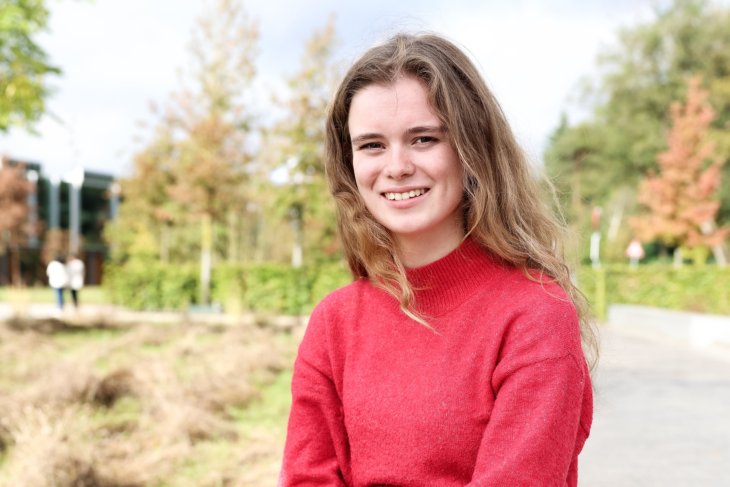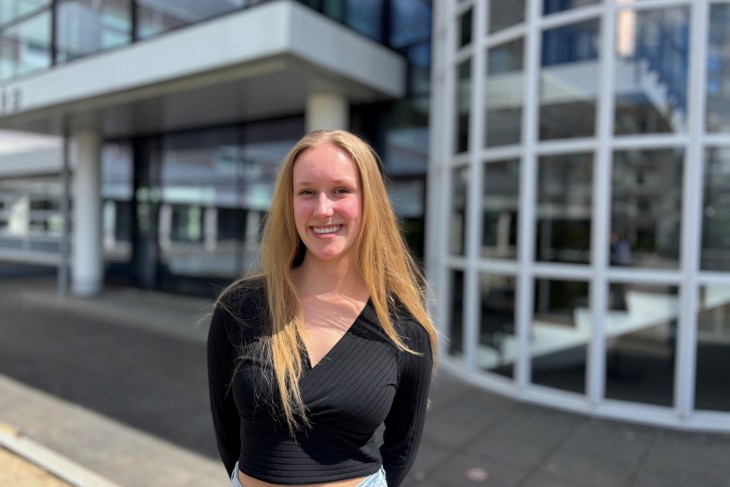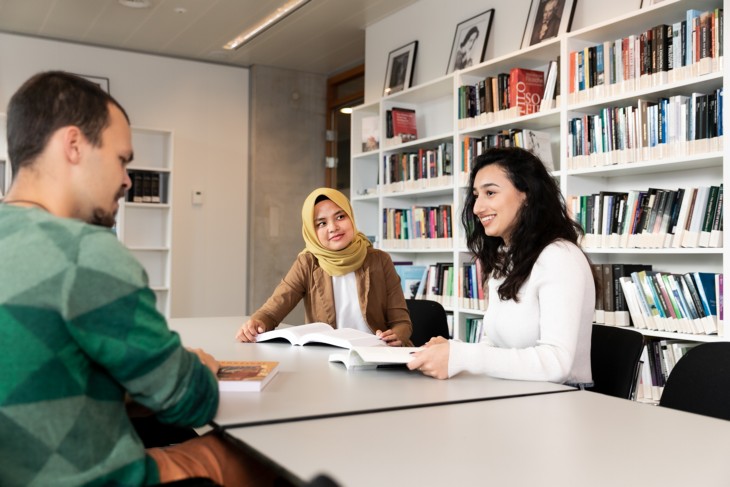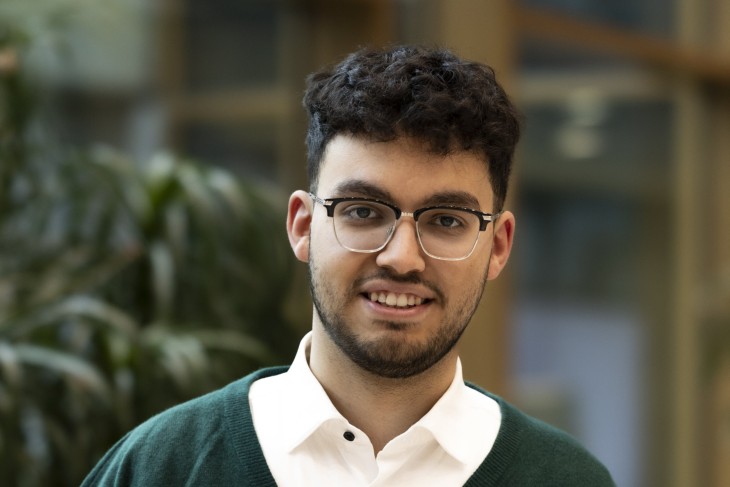“When I attended the Open Day at the University of Twente, one of the teachers explained a problem that hooked me immediately. He asked us to think about the quickest way to find a word in a dictionary. Instead of flipping through every page, he showed how we can cut the search time by opening the dictionary halfway and then narrowing it down from there.
It was like a lightbulb moment for me. The idea that you can calculate and optimise the best way to solve problems like that got me excited about computer science. I chose this programme because I love algorithmic thinking, and I wanted to dive deeper into how logical processes can solve real-world problems.
Projects
Technical Computer Science is computer science with a heavier emphasis on maths. We explore programming, cybersecurity, and data science, among other topics, learning to improve all links within a computer system.
Each module introduces a different subject, followed by a project where you apply what you've learned. For instance, one fun project involved developing a school attendance system. My fellow students and I built a full web application that allowed teachers to log in, take attendance, and check students' presence, it even included bonus features like a class schedule. We collaborated with a company that creates such systems for schools, so it felt motivating to know that our work could be used in schools.
It was fun to create an automatic plant watering system, too. I used sensors to check soil moisture and sunlight: when the ground was dry, and the sun wasn't shining, a pump would automatically water the plants. This project was more about data science since the sensors collected data we had to store and analyse. My project group worked with Electrical Engineering students, and we used a Raspberry Pi, a small computer, to control the sensors and the pump.
While a lot of projects are fun to work on, some can be pretty complex. In a recent assignment, I had to study large graphs with 512 points and connections to determine if they were isomorphic, meaning they had the same structure. The goal of the project, done with the mathematics department, was to help us understand algorithms and make programmes more efficient.
Complex puzzles
The programme is challenging, but I love solving puzzles, and the study feels like one big puzzle. Many students mistakenly believe the programme doesn’t involve a lot of maths, and I nearly failed my first year because of this misconception. I passed all my computer science exams but struggled with the maths. It’s a study for those who are persistent and ready to put in the effort.
Due to the heavy focus on maths and especially because it wasn't my strong suit, I considered switching to another programme like Business Information Technology or Creative Technology. Eventually, I decided to stick with Technical Computer Science and discovered that with enough motivation and hard work, even the challenging maths courses are manageable.
I’m happy to see a change in the representation of women in this study. When I started, women were a small minority in the programme; now, the number has almost doubled. It’s encouraging to see more women joining the field.
Future
In high school, we had a computer science teacher who was doing his internship. He was incredibly passionate about the subject, brought in fun projects, showed us robots he had built, and helped fix the school's IT department. His enthusiasm was infectious and inspired me to go into the field of computer science. I want to become a high school teacher and make the same impact on students.”




